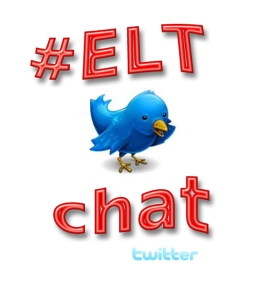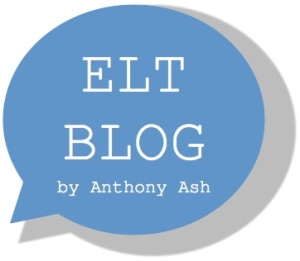The talk kicked off with @SueAnnan and @Marisa_C pointing out that observing experienced teachers is an integral part of diploma level courses, such as the Cambridge Delta or the Trinity DipTESOL. Given this, it was decided the focus of the talk should be less on teachers in training courses and more on teachers in regular working conditions. In other words, as @Angelos_Bollas put it: peer-observing fellow teachers.
@Marisa_C pointed out the fact that in busy schools where teaching staff are tied up with teaching numerous lessons a day, there isn’t much room for finding peer-observation slots. However, Marisa also emphasised the benefit of schools making sure there are slots available for peer-observing and @Angelos-Bollas even suggested an “open door policy.”
Several participants pointed towards the issue of having a focal point of a peer-observation. However, @mary28sou suggested making use of a “rubric” of areas to help give a focus to the observation, such as “board work or pronunciation.” Adding to this idea, @Marisa_C suggested a “peer -observation checklist.” @Angelos_Bollas liked the idea of an observation checklist and even suggested making it available via “a wiki”, so that others can easily access it.
The notion of having pre-obs and post-obs meetings was suggested by @Robitaille2011. This adds to the idea of giving the observation some sort of focus, with both parties talking about this focus before and after the peer-observation. This could include some discussion on how effective the area of focus was in the observed lesson. It could also help the observer to define what they want to get out of the observation, as after all they are observing a colleague for their own CPD benefit.
In true ELT Chat style, the discussion then took a technological line of development, with various participants suggesting making use of technology in connection with peer-observations, including:
- Video recording yourself and then watching it back with your colleagues
- Skype chatting with colleagues and reflecting on lessons that way
- Sharing recordings on YouTube and inviting others to watch and critique
- Joining an online community where you can get support and advice from fellow teachers
The issue of how observations affect learners was raised by @Angelos_Bollas but @SueAnnan was quick to point out that in her experience learners are rarely phased by the presence of observers in the classroom. This was further supported by @Marisa_C and @Shaunwilden.
The discussion then moved to how more remote teachers could do peer-observations. Based on his experience with live streaming, @Angelos_Bollas explained how this issue could be very easily resolved with the use of live streaming technology. He and @Marisa_C emphasised that it is easy to set up and use. Angelos also pointed out that this is an excellent alternative when schools don’t allow or have the facilities in place for peer-observations. @olyaelt highlighted that schools like hers, which are spread out across an area, would also benefit from this.
With the suggestion of recording lessons or parts of lessons came the question of how and the possible technological drawbacks. @Angelos_Bollas was quick to point out that lessons or part there of can be quite effectively recorded through smartphones or tablets.
A key area or issue was picked up on by @languageteach, who posed this question: “What happens if you watch what you think is a ‘bad’ lesson informally and the teacher asks for feedback. Are you honest?” @Marisa_C felt this was a good question and added to it: “How honest can you be?” However, @SueAnnan said that there must some redeeming features of the lesson – using these, the feedback could be delivered in a sandwich style:
- Redeeming Feature
- Areas to work on
- Redeeming Feature
Leading on from the sandwich approach, @languageteach posted a link suggesting this approach might not be as effective as previously thought.
However, as @joannacre showed through her own experiences, sometimes it is hard when giving feedback on bad lessons, especially if you don’t want to hurt your colleagues feelings. This lead to, in her own words, her “not being very helpful.”
While on the topic of bad observed lessons, @bathcagnol suggested requesting to see a second lesson, as the teacher might have been having a bad day when the firs observation took place.
The question of what literature is available about observing teachers was posed. A wide range of responses then followed with several titles and authors put forward, including:
- Breaking Rules by Fanselow
- Exploration in Teacher Observation by Mike Stabbs
- Training FL Teachers by Mike Wallaca
- Observation in the Language Classroom by Dick Allwright
All in all, a very pleasant chat with some further reading to be had by everyone.

Thanks for this summary, Anthony – I am not even CELTA qualified yet, and this was only the second ELTchat I have participated in, but I still found some of the suggestions incredibly helpful.
As part of my CELTA, I shall endeavour to work on my summarising skills, too, as I’m not sure I could ever have produced such a succinct yet comprehensive summary of the evening’s discussion!
Thanks again,
Rachel
PS. I recently blogged about having discovered ELTchat, if you are ever bored of an evening and fancy having a little look – any blogging tips from a master much appreciated 🙂 https://berlingo18.wordpress.com/2015/03/03/discovering-eltchat/
LikeLike